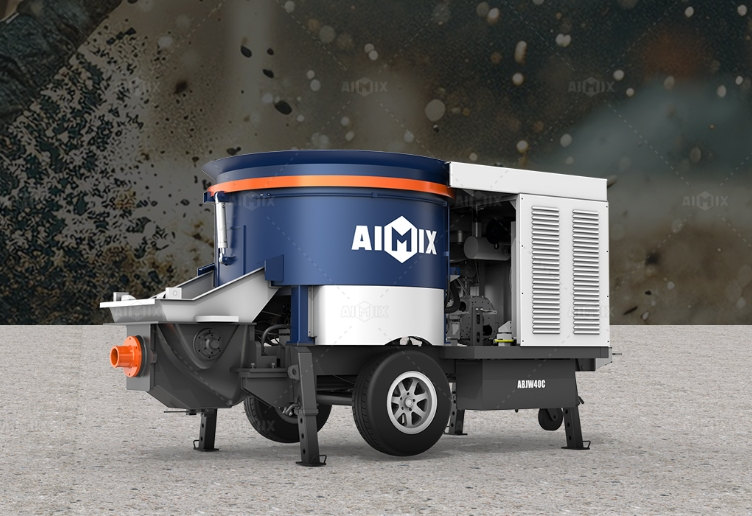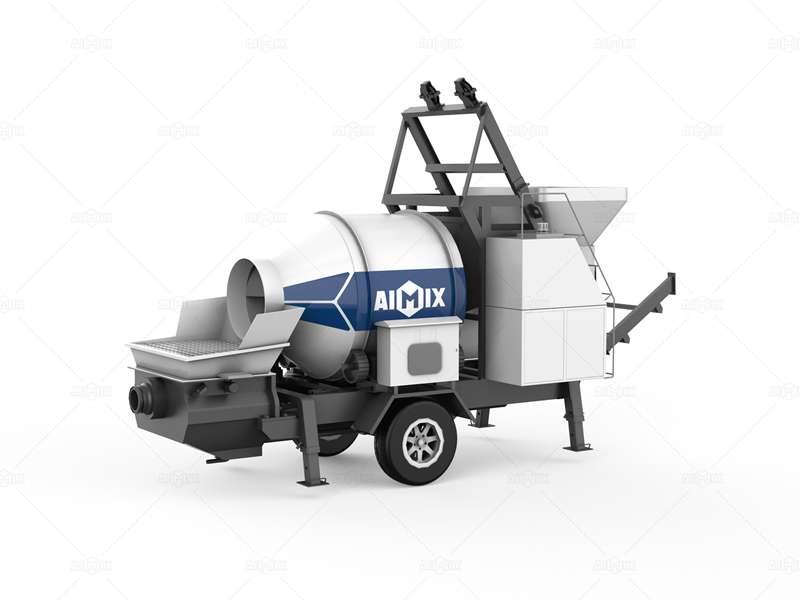When constructing houses in dense urban areas, space constraints and budget limitations make small concrete pumps for sale an ideal solution for efficient concrete placement. Whether you’re looking for a pump concrete for sale or a complete concrete mixer pump for sale, selecting the right equipment requires careful consideration of performance, cost, and adaptability to tight workspaces. The concrete mixer with pump price is a crucial factor, but it shouldn’t be the sole deciding point—durability, fuel efficiency, and maintenance costs also significantly impact the total investment. This guide provides practical tips for purchasing a cost-effective small concrete mixer pump that meets the demands of downtown house construction while keeping overall expenses low.
Assessing Project Requirements Before Purchase
Before browsing small concrete pumps sale, evaluate the specific needs of your downtown construction project:
A. Determining Required Output and Pumping Distance
Low-rise housing (2-4 stories) typically needs a small concrete pump with 10-20 m³/h output and 30-50m horizontal reach.
For narrow alleys with limited access, a mini mixer pump with flexible pipelines is preferable over bulky truck-mounted pumps.
If space allows, a concrete mixer pump for sale with self-loading capability eliminates the need for a separate batching plant, reducing labor and transport costs.
B. Evaluating Site Accessibility
Downtown construction often has tight entry points, overhead obstructions, and pedestrian traffic.
Measure street width, turning radius, and ground stability to ensure the selected pump concrete for sale can maneuver without requiring special permits or road closures.
Electric or hybrid models may be necessary if diesel emissions are restricted in urban zones.
C. Calculating Budget and Long-Term Costs
Compare the concrete mixer with pump price across different suppliers, but also factor in:
Fuel consumption (diesel vs. electric efficiency).
Maintenance expenses (availability of spare parts, service support).
Resale value (corrosion-resistant models retain higher value).
Key Features to Look for in a Small Concrete Mixer Pump
When comparing small concrete pumps for sale, prioritize these features for downtown construction:
A. Compact and Lightweight Design
Trailer-mounted or mini-truck-based units are easier to transport through narrow streets.
Foldable booms or extendable hoses help avoid obstacles like power lines and balconies.
Short setup time (under 30 minutes) minimizes street occupation.
B. Fuel Efficiency and Low Emissions
Electric or hybrid models reduce operating costs and comply with urban emission laws.
Tier 4 diesel engines (if electric isn’t feasible) offer cleaner combustion.
Automatic idle reduction saves fuel during downtime.
C. Ease of Operation and Maintenance
Remote-controlled pumping allows precise placement without multiple workers.
Self-cleaning systems prevent concrete hardening in pipelines, reducing water waste.
Modular components simplify repairs, minimizing downtime.
D. Durability for Urban Conditions
Reinforced pipelines resist abrasion from frequent use.
Corrosion-resistant coatings protect against urban pollution and humidity.
Shock-absorbing outriggers stabilize the pump on uneven pavement.
Cost-Saving Strategies When Purchasing
To ensure the concrete mixer with pump price stays within budget while maintaining quality:
A. New vs. Used Equipment
New pumps offer warranties and latest tech but at a higher concrete mixer with pump price.
Certified used models (from reputable dealers) can cut costs by 30-50% if properly inspected.
B. Leasing or Renting Options
Short-term projects may benefit from renting a pump concrete for sale instead of buying.
Lease-to-own programs allow gradual investment while using the equipment.
C. Bulk Purchase Discounts
If multiple projects are planned, some suppliers offer discounts on small concrete pumps for sale in bulk orders.
Package deals (e.g., pump + mixer + training) can reduce overall expenses.
D. Financing and Government Incentives
Equipment loans with low-interest rates ease upfront costs.
Tax deductions (e.g., Section 179 in the U.S.) may apply for energy-efficient models.

Comparing Suppliers and Negotiating the Best Deal
Not all concrete mixer pumps for sale are equal. Follow these steps to choose the right supplier:
A. Research Reputable Brands
Look for manufacturers with urban construction experience (e.g., Putzmeister, Schwing, Zoomlion).
Check online reviews and industry forums for reliability feedback.
B. Request On-Site Demonstrations
Test the pump in conditions similar to your downtown site (tight space, noise restrictions).
Verify pumping consistency, maneuverability, and ease of cleaning.
C. Negotiate Beyond the Sticker Price
Ask for free operator training or extended warranty coverage.
Inquire about discounted spare parts or service packages.
Post-Purchase Optimization for Maximum ROI
After securing a small concrete pump for sale, implement these practices to minimize costs:
A. Regular Maintenance Schedule
Daily: Flush pipelines, check hydraulic oil levels.
Monthly: Inspect seals, lubricate moving parts.
Annually: Overhaul critical components (pistons, valves).
B. Operator Training for Efficiency
Proper technique reduces fuel waste and wear.
Trained workers avoid costly mistakes (e.g., pipeline blockages).
C. Tracking Performance Metrics
Monitor fuel usage per m³ pumped to identify inefficiencies.
Log maintenance costs to anticipate future expenses.
Balancing Affordability and Performance
Purchasing a small concrete mixer pump for downtown house construction requires balancing the concrete mixer with pump price with long-term value. By selecting a compact, fuel-efficient model and leveraging financing options, contractors can reduce upfront costs while maintaining productivity. Proper maintenance and operator training further enhance ROI, ensuring the pump remains a cost-effective asset across multiple projects.
Key Takeaways:
✔ Choose a 10-20 m³/h pump with 30-50m reach for low-rise urban housing.
✔ Prioritize electric/hybrid models for fuel savings and emission compliance.
✔ Compare new, used, and rental options to fit budget constraints.
✔ Negotiate training, warranties, and spare parts with suppliers.
✔ Implement preventive maintenance to extend equipment lifespan.
By following these guidelines, builders can secure a small concrete pump for sale that delivers efficiency, reliability, and low total ownership costs for downtown construction.

